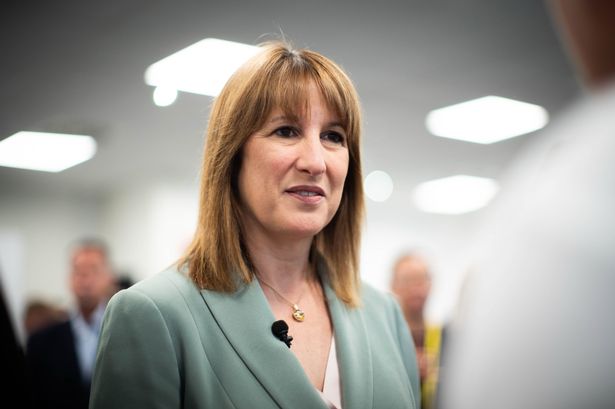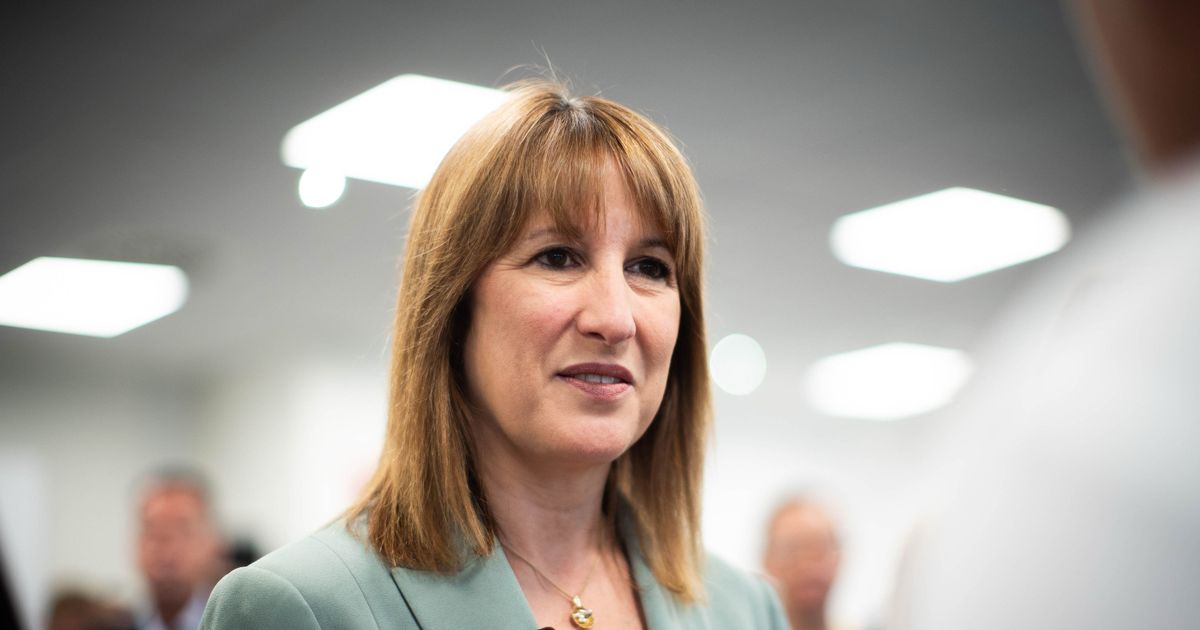A campaign has soared pask a threshold meaning the Treasury will be forced to respond Chancellor of the Exchequer Rachel Reeves is being told to help pensioners out with their tax allowance by a petition(Image: PA)
Chancellor of the Exchequer Rachel Reeves is being told to help pensioners out with their tax allowance by a petition(Image: PA)
A campaign urging the Government to grant pensioners a special exemption to avoid the tax burden on the lowest earners ihas soared past a key threshold as support has been gathering. A petition on the Parliament website is advocating for a new tax code for pensioners that would double their personal tax allowance.
At present, anyone earning more than £12,570 begins paying tax at the standard rate of 20 per cent. This rate has been frozen since 2021 and due to the process known as ‘fiscal drag’, many more individuals are now paying tax – including some of the country’s lowest earners.
There are fears that even those receiving the basic state pension could soon start paying income tax under the ‘triple lock’ system. The State Pension is projected to rise by 4.8% in April 2026 due to the government’s triple lock guarantee.
This will boost the full new State Pension from £230.25 to £241.30 per week (£12,548 per year), which is just slightly below the threshold.
The government has already confirmed that the freeze will continue until 2028, meaning subsequent years will begin paying income tax. Chancellor Rachel Reeves will reportedly freeze thresholds for an extra two years to 2030 after abandoning her plans to hike income tax in the budget, according to new reports, which said the move could add £8 billion to the Treasury.
A Treasury spokesperson said: “We do not comment on speculation around changes to tax outside of fiscal events.”
A petition on the Parliament website today soared past 10,000 signatures to 11,959 signups, which will compel the Treasury to respond, outlining its stance and whether it will contemplate a change. This could exert pressure ahead of the Budget and if it garners 100,000 signatures, it could also trigger a debate with MPs.
The petition, initiated by Timothy Hugh Mason, states: “We want the government to introduce a new tax code for state pensioners, set at double the basic threshold. If this was implemented, pensioners would receive a higher tax-exempt limit, but wealthier pensioners would still pay tax.
“We think that people with small private or workplace pensions are currently being taxed unfairly.”
There’s mounting pressure on the government over tax allowances. Another petition has exceeded 10,000 signatures, demanding the basic threshold be raised from £12,570 to £20,000.
A separate petition, launched by Shannon Keene, asserts: “Raise the income tax personal allowance from £12,570 to £20,000. This would help with increasing rent, mortgages, Council tax, and Gas and Electric bills. Some families can’t afford to go back to work after children due to childcare costs wiping out their whole income!”.
“We think that we are currently paying ridiculous amounts of tax, and that minimum wage isn’t even enough to support an average family. We believe that this would lead to a massive increase in people willing to look for work, instead of people not wanting to, due to it being too expensive to live now.”
The matter has generated significant public interest, with multiple petitions launched nationwide. A petition earlier this year demanding the threshold be raised to £20,000 gathered an impressive 281,792 signatures on the Parliament website before closing to new supporters during the summer months.
This led to a Parliamentary debate in which the Treasury put the cost at £50 billion. Demonstrating the level of public concern, a fresh petition has now been started calling for the income tax personal allowance to rise from £12,570 to £20,000.
Campaigners pointed to the previous petition’s status as amongst the largest ever recorded on the parliament website as proof of widespread public feeling on the matter. Currently, a basic tax rate of 20 per cent is applied to earnings above £12,570, whilst higher earners face a 40 per cent rate on income exceeding £50,270 – both thresholds have remained frozen since 2021.
James Murray, Exchequer Secretary to the Treasury, has previously warned that raising the tax threshold to £20,000 would carry a substantial financial burden.
He said: “I recognise the views of everyone who has put their name to the petition, and let me be clear that, as a Government, we want taxes on working people and on pensioners, who have worked hard all their lives, to be as low as possible.
“We were elected to put more money in people’s pockets and, crucially, we were elected to do so in a fiscally responsible way. That is a critical point to understand.
“We aim to keep taxes on working people and pensioners as low as possible, but if we were to heed the calls of some Opposition parties and abandon fiscal responsibility, it would lead to economic chaos and the collapse of public services, and that would harm working people and pensioners the most.
“Raising the personal allowance to £20,000 would cost more than £50 billion. That is more than the £45 billion of unfunded tax cuts announced by Liz Truss in her disastrous mini-Budget.”
Helen Miller, director of the Institute for Fiscal Studies (IFS) think tank, said it was “not unusual” for chancellors to make last-minute changes to their Budget plans.
She added: “But the news that Rachel Reeves has backed away from a plan to increase the rates of income tax will lead investors to worry that the Chancellor will instead increase a range of smaller taxes that can be more damaging to economic growth.
“They may also worry that the change of plans signals that this Government are reluctant to do politically difficult things.
“These are the kinds of concerns that can lead investors to demand higher returns when lending to the Government.”
If the Government does choose to raise a set of smaller taxes, they should also be reformed “so that they do less damage to growth”, the IFS chief said.
The petition can be viewed here.

